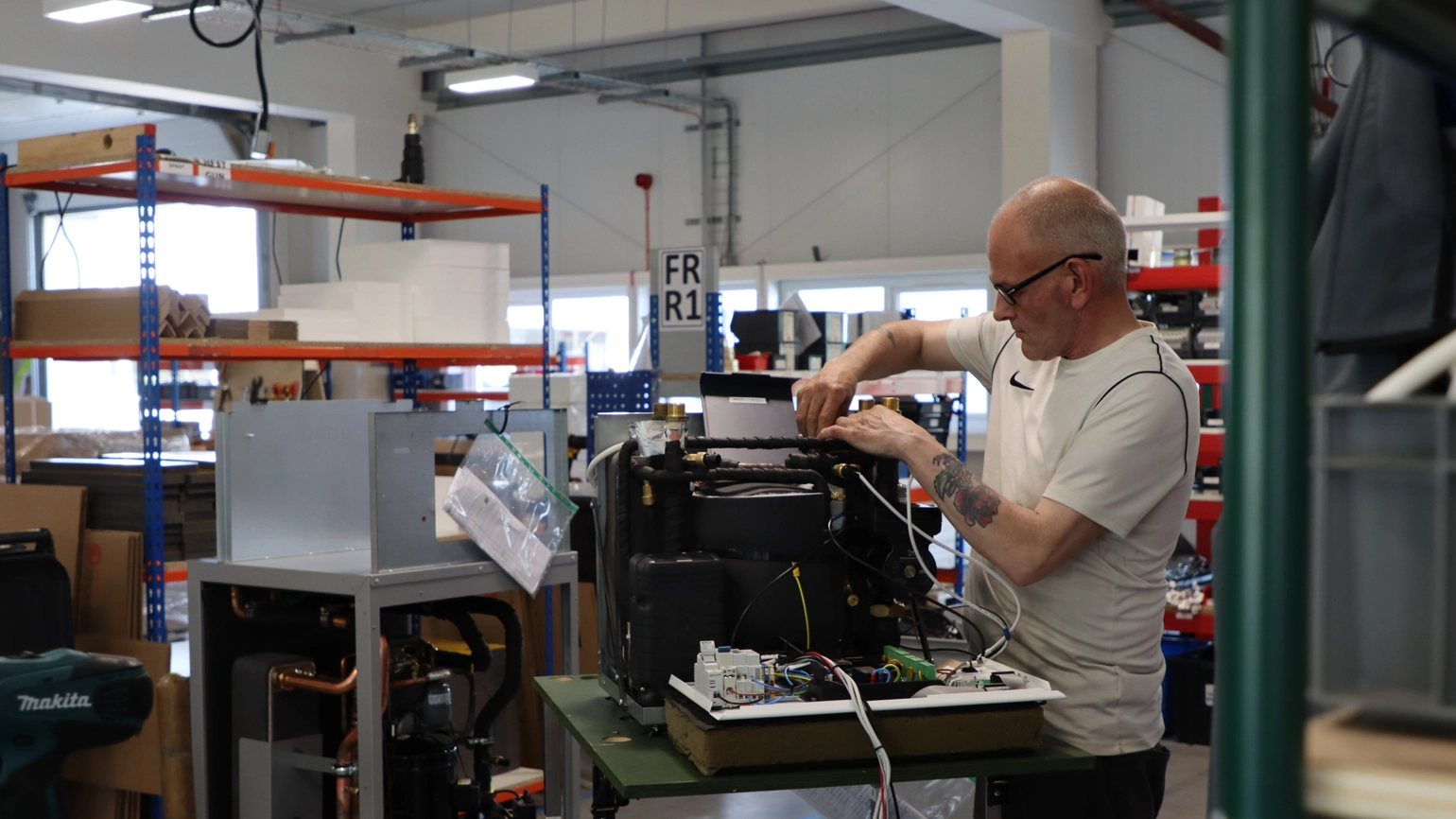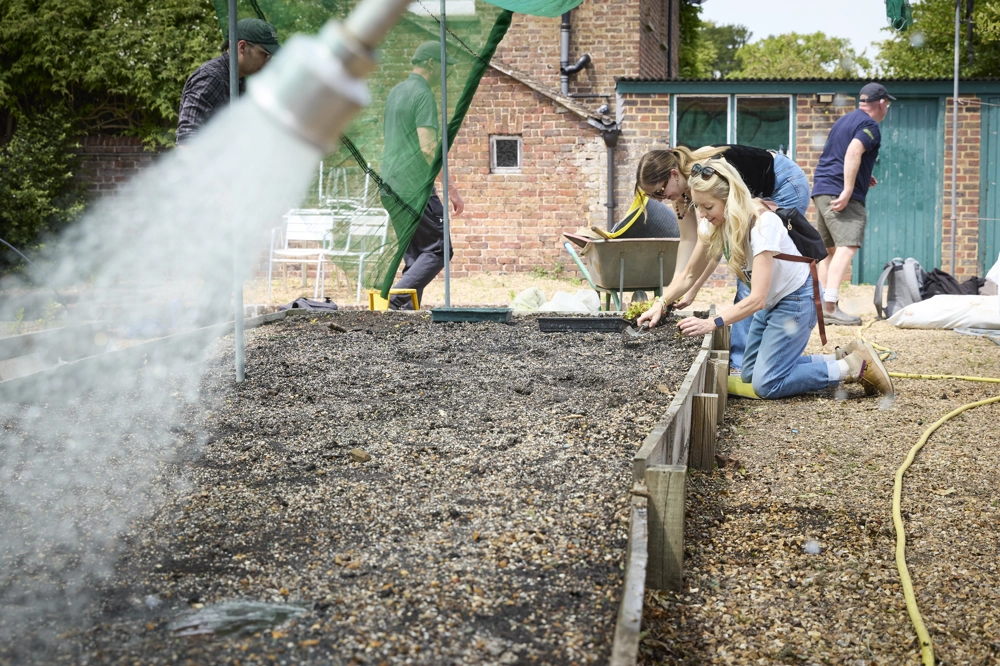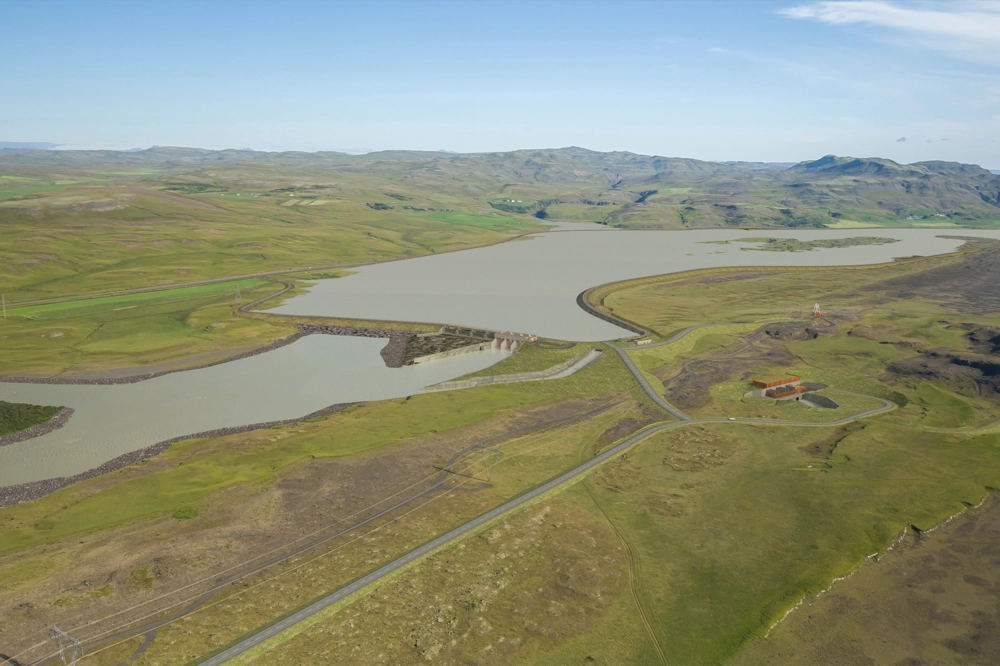We recognise that to support our future, we need to play a role in building a cleaner, greener society.
Investing in low carbon energy is already the new normal. The lower costs, resilience and environmental benefits means that it is no longer an “alternative” investment.
We have committed £5bn of alternative asset investments globally, into delivering new homes, offices, clean energy infrastructure and urban regeneration schemes. Clean energy generation offers stable long-term returns to secure pension payments far into the future, and by unlocking the power of pensions we can play an important role in tackling climate change.
So, we’ve invested in three offshore wind farms and into renewable energy funds that pay for new projects. And we’re backing companies developing zero carbon fusion and solar energy technology, and installing electric vehicle and low carbon heating infrastructure – our latest investment is in ground source heat pump company Kensa Group: our teams are proactively seeking green energy to invest in and tracking green investment trends.

“We are deploying our capital to accelerate the UK’s progression to a low-cost, low-carbon economy. Our clean energy investments, which include low carbon heat, transport and power generation, will play an essential part in the UK’s solution for reaching net zero carbon emissions by 2050.”
Managing Director, Clean Energy Strategy & Investments
Legal & General Capital
1. Experts predict that global CO2 emissions from fossil fuels will peak at 39 gigatonnes per year in 2025
We're supporting clean energy businesses that already employ more than 400 skilled workers in the UK green economy, and we expect further growth in employment in the sector as the UK invests for the future post Covid-19 where tackling climate change should dominate the agenda and trends in sustainable investing accelerate.
2. A rise of more than 1.5°C will change our environment with severe and costly impacts on human health and prosperity
January 2020 was the warmest January since 1880, and as global temperatures continue to rise, we will see more extreme storms, floods and droughts, as well as the extinction of species. In the past decade 476 species have been declared extinct, and the UN says another million are at risk. This matters – because people rely on food and medicine to survive.
If we limit a global temperature rise to 1.5°C (as per the Paris Agreement) we will: see a 10cm reduction in the rise in sea levels; put the likelihood of an Arctic Ocean free of sea ice in summer at once per century rather than once per decade; and cause a decline in coral reefs of 70–90%, versus the destruction of more than 99%. This is important because billions of people live in homes that are vulnerable to flooding and increasing frequency of catastrophic weather events.
3. Global emissions must fall by 7.6% annually
“We haven’t succeeded in bending the global emission curve.” These are the words of the Technical University of Denmark’s Anne Olhoff, one of the leaders in the UN’s latest report on climate change.
Fossil CO2 emissions from energy use and industry, which dominates total greenhouse gas emissions, grew 2% in 2018 to reach a record 37.5 gigatonnes per year. To keep the global temperature rise to within 1.5°C, these emissions need to fall by 7.6% each year for the next 10 years. If we want to ‘bend the global emissions curve’ and limit temperature rise to 1.5°C, by 2030 we need to reduce the amount of CO2 emissions by a staggering 32 gigatonnes.
“Progress is being made, commitments set, deadlines beaten – just think of the scale of change that we can achieve if we go further and faster together. ”
Chief Executive - Climate Group
4. Big societal changes are needed
The UN has said collective ambition to meet this year-on-year 7.6% target must increase more than fivefold over current levels. This means huge investment is needed in electric cars, green energy, reforestation, reduced meat consumption and a downturn in consumerism.
What’s good is that the technologies and policy knowledge to achieve this are already available. And the mindset of society is changing: for example, vegan diets and electric cars are gaining popularity as well as green investment options and sustainable investing trends.
But it’s not about simply being able to and wanting to make changes. It’s about understanding the need to transform the world we live in, and starting that transformation today – not tomorrow. We can meet the sustainable investing challenge and encourage positive change.
5. No ‘credible pathway’ to 1.5C limit, UNEP warns
There’s “no credible pathway to 1.5C in place” at the moment according to the UN Environment Programme (UNEP) in their latest report, despite legally binding promises made at the 2015 Paris Climate Conference to prevent average temperatures rising by more than 1.5C.
At Legal & General we recognise that we are in a climate change crisis. Thankfully, we can – and will continue to – use our scale and influence to invest in clean energy solutions that will power a sustainable and long-term future for our customers, wider society and generations to come.
“We are deploying our capital to accelerate the UK’s progression to a low-cost, low-carbon economy.”
Head of Clean Energy




